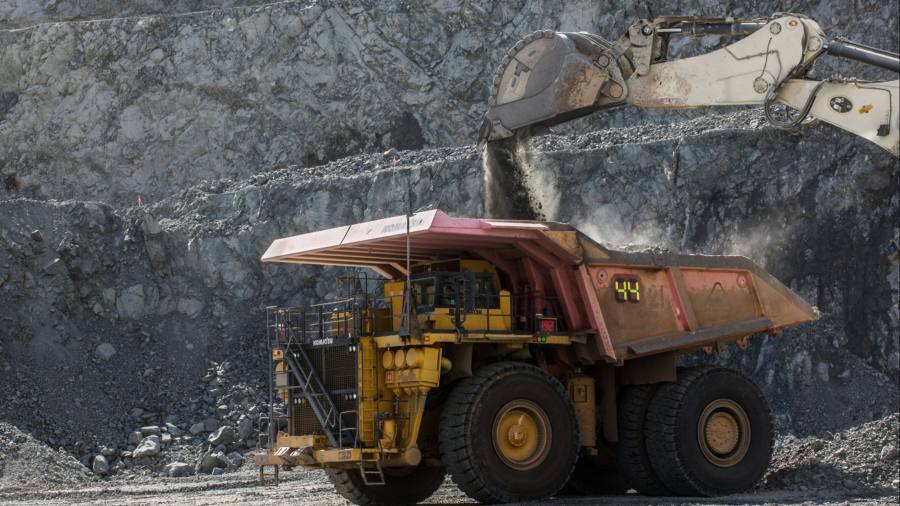
Mongolia opened a new rail line to China on Friday that the landlocked country’s prime minister said would help it weather the zero-Covid controls that have disrupted cross-border trade with its powerful neighbour.
“The opening of the new railway is historically important for Mongolia,” Oyun-Erdene Luvsannamsrai said in an interview with the Financial Times ahead of the launch of the Zuunbayan-Khangi rail link, which will transport commodities from mines including Rio Tinto’s Oyu Tolgoi project to the world’s second-largest economy.
After almost three years of disruption caused by Covid-19 and China’s strict epidemic controls, cross-border trade is finally nearing pre-pandemic levels. “Currently an average of 1,300 [commodity] cars are leaving Mongolia’s borders each day,” the prime minister said. “In 2019 it was 1,500.”
Mongolia’s economy grew 3.7 per cent year-on-year in the third quarter this year, its biggest rise since 2019. Economic output rebounded just 1.4 per cent in 2021 after a 4.6 per cent fall in 2020.
Zuunbayan-Khangi is one of three new rail links to China that Luvsannamsrai said would boost export capacity by an additional 4,500 cars per day and help lessen Mongolia’s traditional reliance on trucks to carry iron ore, coal and other bulk commodities.
Truck traffic across the two countries’ 4,630km frontier has been frequently disrupted because of China’s fears that drivers would transmit the virus.
“Using trucks takes a long time and costs a lot,” Luvsannamsrai said. “Rail is much better. It has a lower risk of transmitting Covid and is the safest way for exporting.”
The 227km Zuunbayan-Khangi railway was completed in just eight months because construction activity is impossible during Mongolia’s frigid winters. It connects to a newly constructed counterpart in China that can transport commodities to industrial centres such as Baotou in the Chinese region of Inner Mongolia.
Luvsannamsrai, 42, was appointed prime minister in January 2021 and has launched a “New Revival Policy” that aims to boost Mongolia’s exports to China, pay down foreign debt and decrease reliance on Russia for energy.
He said 90 per cent of Mongolia’s exports flowed to China and the country was “wholly dependent” on Russia for energy supplies. Those lifelines have been threatened, respectively, by Beijing’s contentious zero-Covid policy and international sanctions imposed on Moscow because of its invasion of Ukraine.
President Xi Jinping’s administration has reiterated its support of zero-Covid to contain the virus in China. But Luvsannamsrai said he was optimistic the situation would improve next year after the country appointed a new premier in March, most likely Li Qiang.
“After the [January] lunar new year in China we do believe that the new government, which will be in place in March, will focus mainly on economic growth,” he said. “In conjunction with that, vaccination rates will be much higher in all countries, so we do anticipate better days are coming.”